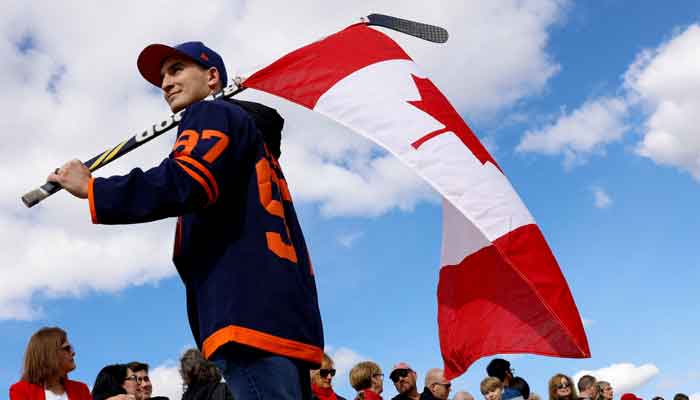Canadian Leaders Make Final Election Appeals as Vancouver Tragedy Casts a Shadow
Canadian Prime Minister Mark Carney and Conservative leader Pierre Poilievre concluded their election campaigns on a somber note Sunday after a devastating incident in Vancouver, where a man drove into a crowd during a Filipino community festival, killing at least 11 people.
Final Campaign Day Overshadowed by Vancouver Tragedy
Sunday marked the final day of the five-week election campaign, with both leaders making their closing arguments ahead of Monday’s vote. The election has been heavily influenced by U.S. President Donald Trump’s tariffs and his controversial remarks about annexing Canada.
Authorities confirmed that a 30-year-old Vancouver man, already known to police, had been arrested in connection with the attack. While it remains unclear whether the tragedy will sway voter sentiment, both Carney and Poilievre extended their condolences to the victims’ families.
Leaders Offer Condolences, Adjust Campaign Schedules
A Liberal Party official stated that Prime Minister Carney would travel to Vancouver later Sunday to join British Columbia Premier David Eby and Filipino community leaders.
“Our hearts go out to the families and friends affected by this terrible tragedy,” Carney told supporters during an event in Saskatoon. “This is a heartbreaking loss for the close-knit Filipino community in the Lower Mainland, in Saskatoon, and across the 1-million-strong Filipino community in Canada.”
At a rally in Oakville, Ontario, Poilievre also addressed the tragedy, offering support to the grieving Filipino community. His supporters responded with chants of “We want change,” underscoring the Conservative push to end nearly a decade of Liberal governance under former Prime Minister Justin Trudeau.
Campaign Promises and Economic Strategies
Poilievre has vowed to slash foreign aid spending and eliminate federal sales tax on Canadian-made vehicles while U.S. tariffs remain in effect, promising policies aimed at boosting domestic manufacturing.
Meanwhile, Carney continued to engage supporters across Saskatchewan and Edmonton, emphasizing his ability to guide Canada through the economic challenges posed by Trump’s aggressive trade policies. However, out of respect for the victims, Carney canceled planned election rallies scheduled for Calgary and Richmond, British Columbia.
Carney, a former central banker and college hockey goalie, likened the final stretch of the campaign to a critical moment in Canada’s beloved sport. “We are in the equivalent of Game 7 of the Stanley Cup Finals, with two minutes left on the clock,” Carney, 60, told voters near Toronto.
Tight Race as Election Day Approaches
Polling indicates a razor-thin lead for Carney’s Liberal Party. A Nanos Research survey released Sunday shows the Liberals holding 43% support nationally compared to the Conservatives’ 38.9%—a slight expansion over the previous day’s margin.
Analysts suggest that the Liberals’ concentrated urban support could secure them more seats, even if the overall vote remains close. However, it remains uncertain whether the Liberals can secure a majority without forming a coalition.
The Nanos survey polled 1,600 adults between April 24–26, with a margin of error of ±2.4 percentage points. An Ipsos Canada poll released later Sunday also reported a four-point Liberal lead.
Key Battlegrounds and Voter Sentiment
British Columbia’s 43 electoral districts have emerged as key battlegrounds, with both parties aggressively campaigning to win over undecided voters.
Poilievre’s message of change and promises to reduce the cost of living have particularly resonated with younger male voters, leading to large, energetic rallies. Carney, who has sought to distance himself from Trudeau’s legacy, has drawn solid support among older Canadians.
Heading into Election Day, both leaders made their final pushes in a race that has tightened considerably, setting the stage for a dramatic and emotional conclusion.
Also Read:
Canadian Election: Final Polls and What to Expect




